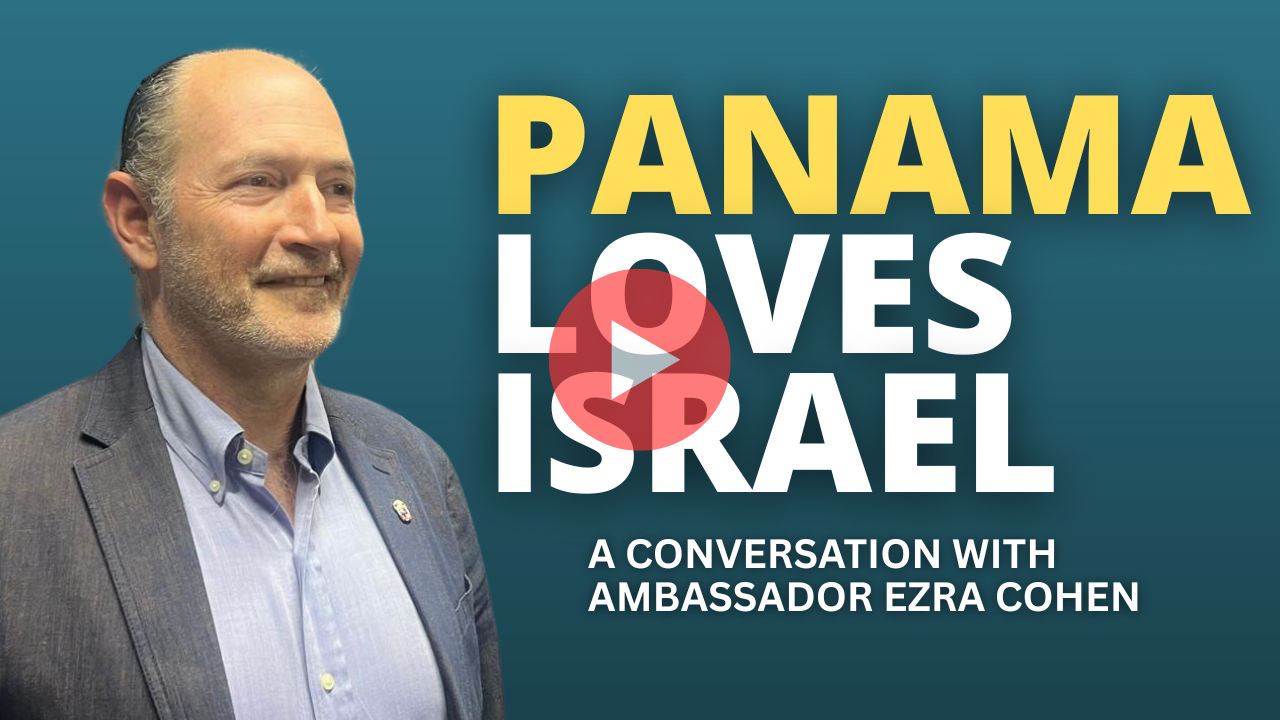It’s not a warmed-over version of Obama’s fatally flawed Joint Comprehensive Plan of Action.
(May 7, 2025 / JNS)
A fourth round of talks between Tehran’s envoys and Steve Witkoff, U.S. President Donald Trump’s lead negotiator, did not take place in Rome over the weekend as had been expected.
Neither Tehran’s spokesmen nor the U.S. State Department gave a clear explanation for why, but I’ll venture a guess: Iran’s rulers want concessions in exchange for continuing to talk.
They think Trump needs negotiations more than they do. Their assessment is based on years of palaver with presidents Obama and Biden.
Iranian Supreme Leader Ali Khamenei hopes that, concession by concession, he can convince Trump to embrace a warmed-over version of Obama’s Iran nuclear deal, the fatally flawed Joint Comprehensive Plan of Action (JCPOA), which Trump called “a horrible one-sided deal that should never, ever have been made.”
Sunday on “Meet the Press,” President Trump reiterated what he wants: “Total dismantlement [of Tehran’s nuclear weapons program]. That’s all I would accept.”
That means no uranium enrichment or reprocessing, and a halt to the regime’s development of missiles that can deliver nuclear warheads to American cities.
Witkoff is not a career diplomat. That may prove advantageous. Too often, career diplomats are overly eager to conclude deals because doing so brings them professional plaudits.
If those deals turn out to be bummers, so what? By then, the diplomats will have been promoted or awarded a professorship at an elite university where they can hold forth on The Art of Diplomacy.

That’s how North Korea became nuclear-armed after decades of negotiations and agreements.
That’s how Syria retained a stock of chemical weapons after the Obama administration claimed a Russian-mediated dialogue had brought about the destruction of the Assad regime’s CW arsenal.
The 2015 JCPOA is an especially egregious example. As Sen. Tom Cotton observed: “The deal didn’t block Iran’s path to the bomb; it paved the path.”
Obama argued that no one could have achieved a better deal than he had—an unfalsifiable argument. He also said that the only alternative to his deal was war—another unfalsifiable argument.
A policy of “peace through strength”—which was not Obama’s policy but is Trump’s—implies that your adversaries are more fearful of you than you are of them because they recognize your superior might and don’t doubt your willingness to act if push comes to shove.
To be fair, 10 years ago, Tehran had what was believed to be a first-rate missile-defense system supplied by Russia, and commanded powerful terrorist proxies throughout the Middle East and beyond.
You know what happened next: In 2017, Trump became president. The next year, he withdrew the United States from the JCPOA and began to impose serious strains on Iran’s economy.
On Jan. 3, 2020, Trump terminated with extreme prejudice Qassem Soleimani, the skillful commander of Iran’s elite Quds Force, responsible for killing hundreds of Americans and determined to kill hundreds more.
No war resulted and, by the end of that year, Tehran had just $4 billion in accessible foreign exchange reserves, limiting the support it could provide to Hezbollah, Hamas, Palestinian Islamic Jihad, its Shi’ite militias in Iraq and Syria, and the Houthi rebels in Yemen.
These effective policies came to a halt when Trump moved out of the White House and Biden moved in.
Hoping to seduce Iran’s rulers back into some version of the JCPOA, Biden gave them sanctions relief, pouring tens of billions of dollars into their coffers. He lifted the terrorist designation from the Houthi rebels.
Iran’s rulers smelled weakness, which did not mitigate their hostility toward “the Great Satan,” their determination to exterminate “the Little Satan” or their grand ambition to become the most powerful Islamic empire since the fall of the Ottomans.
Deploying thousands of advanced centrifuges, they expanded their nuclear weapons program, producing highly enriched uranium, and began the computer modeling necessary to make a nuclear warhead.
They sold oil to Beijing and drones to Russia for use in its war of aggression against Ukraine. Scores of attacks by Iran’s terrorist proxies in Iraq and Syria against American troops went unanswered by the Biden administration.
On Oct. 7, 2023, Hamas, bolstered by Iranian funds, weapons and training, invaded Israel and staged the worst massacre of Jews—and anyone who happened to be Jew-adjacent—since the Holocaust.
Since then, Israel has fought on multiple fronts. Hezbollah has been decimated. Tehran’s proxy in Syria has been overthrown.
Following two missile and drone attacks on Israel directly from Iranian soil in 2024, the Israeli Air Force destroyed most of Iran’s missile defense systems and severely degraded the regime’s ballistic missile production capability.
Iran’s rulers are now weaker and more vulnerable than they’ve been since the end of its war with Iraq in the 1980s.
President Trump has stated clearly: “We will not allow a regime that chants ‘Death to America!’ access to the most deadly weapons on earth.”
Others who support “dismantlement” include presidential advisers Marco Rubio, Pete Hegseth, Mike Waltz and the Senate Republican Conference, along with evangelical leaders.
So, too, does Witkoff. He has Trump’s ear and trust. If his Iranian interlocutors remain intransigent, there’s no reason for him not to report that to the president. No deal is better than a bad deal.
George Shultz, one of the most skillful American diplomats of the 20th century, left us this insight: “Negotiations are a euphemism for capitulation if the shadow of power is not cast across the bargaining table.”
Shultz had the experience and wisdom to recognize how the real world works. He understood that “peace through strength” is not just a catchy phrase. It’s a policy that must be implemented with confidence, courage and determination.

 Whatsapp
Whatsapp




